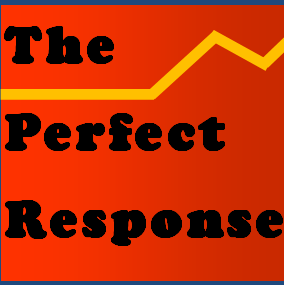The idea that a picture is worth a thousand words is an old piece of logophobia that excuses our rusty descriptive skills.
 I can’t count the number of times in the last few weeks I’ve been asked to send a picture to a company about one of their products. Fixing a newly purchased home has meant some upgrades. So when a new refrigerator arrived with a dent, a call to the seller got the response, “send us a picture.” Similarly, a brand new water heater did everything except heat water. “Send a video” noted the plumber, who seemed not to hear my explanation of its futile on and off cycles. Ditto with the purchase of a new light fixture that came broken on route from Los Angeles to our front porch. “Send a picture of the damage” was the request of the seller. Incredibly, it seemed unlikely to them that the delivery service could have mangled the awkward box in its 3000 mile trip. Even a request for any new household account can now means downloading images of utility bills, or various forms of proof. By themselves, none of these requests are outrageous. But there seems to be a trend.
I can’t count the number of times in the last few weeks I’ve been asked to send a picture to a company about one of their products. Fixing a newly purchased home has meant some upgrades. So when a new refrigerator arrived with a dent, a call to the seller got the response, “send us a picture.” Similarly, a brand new water heater did everything except heat water. “Send a video” noted the plumber, who seemed not to hear my explanation of its futile on and off cycles. Ditto with the purchase of a new light fixture that came broken on route from Los Angeles to our front porch. “Send a picture of the damage” was the request of the seller. Incredibly, it seemed unlikely to them that the delivery service could have mangled the awkward box in its 3000 mile trip. Even a request for any new household account can now means downloading images of utility bills, or various forms of proof. By themselves, none of these requests are outrageous. But there seems to be a trend.
The point is that verbal explanations presented to an increasingly rare customer service agent now seem to count for very little. And there’s this: visual verification of a problem represents an unmistakable shift of the burden of proof from the seller to the buyer.
We have a leaky rain gutter on the top floor of our townhouse. I’m sure that when I get around to it, my call to the person who is responsible for roof repairs in our development will request a request a picture. Since it is a continuous drip rather than a waterfall, and since water falling from a roof will not photograph well, the image will probably show nothing. I could substitute a photo of Niagara Falls, but that seems a tad passive-aggressive.
When did consumers need to become videographers? Why has it become the consumer’s job to document a problem beyond what he or she has been clearly described? Does a request for a photo unburden the service provider to be a keen listener? We are told good doctors carefully listen to what their patients say. But that is bound to be less true if they are distracted by their own computers and diagnostic equipment.
I suspect I’m not the only older person for whom a phone still sits somewhere on a table rather than permanently grafted to their left hand. Using it as a camera still comes as a slightly unnatural act: another use of an awkward device that is essentially a bad computer, a bad keyboard, and a producer of subpar audio. And now we want it to be a Leica.
The larger issue is whether we are abandoning the idea of talking through a problem in the false hope that a picture will be a good substitute. The old piece of logophobia that “a picture is worth a thousand words” sometimes seems to be an excuse to give up on verbal fluency. It’s a significant loss of our cognitive powers to ignore the more absorbing dance of thought and expression.
![]()




